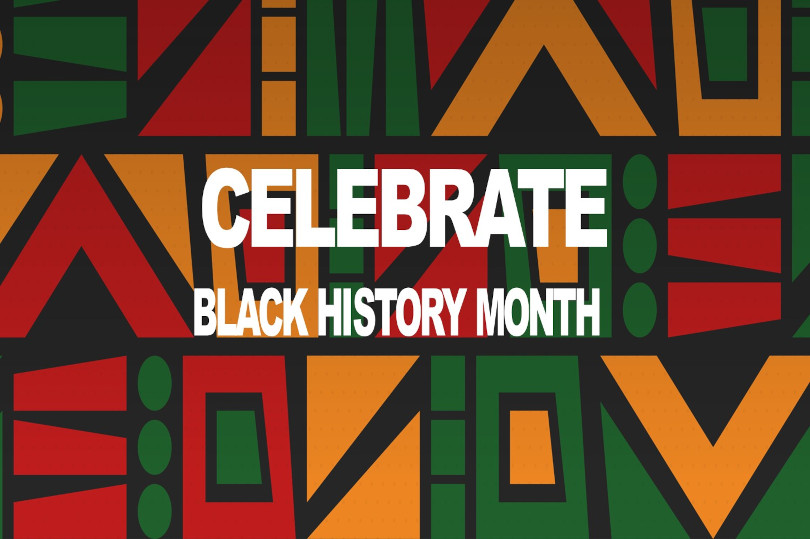Black History Month\’s origins start with Abraham Lincoln signing the 13th Amendment into the Constitution. This Amendment, enacted during the Civil War, abolished chattel slavery in the United States. The 15th Amendment, which guaranteed the right to vote regardless of race, was ratified 5 years later on February 3, 1870. On February 7, 1926, Carter G. Woodson conceived the first Negro History Week. Fifty years later, President Gerald Ford transforms Negro History Week into Black History Month. He heralded it as an opportunity for Americans to celebrate Black culture and history. During this time, there is a heightened focus on the history of Black people and Blackness in America. Blackness and America are like two bitter halves of a whole. While we celebrate the achievements and strides of the Black community, these celebrations are often short-lived as we continuously see a harsh reality drawn across racial lines.
A Social Band-Aid
To say that Abraham Lincoln set the groundwork for what we know as Black History Month is an incomplete statement. It is important to remember that Lincoln, above all else, was a politician. During the Civil War, Lincoln\’s primary goal was to preserve the Union, not abolish slavery. A lack of free labor severely diminished the Confederate supply lines. The Emancipation Proclamation also incentivized formerly enslaved Black people to fight for the Union army. Even after the 13th Amendment, Black people were still enslaved until June 17, 1865, when enslaved peoples were finally informed of their 2-month overdue freedom.
Even though free Black people found more sustainable livelihoods in the North, the remnants of slavery still strongly influenced American society. The 13th Amendment ensured that slavery was illegal, unless under punishment for a crime. A glaring loophole that opened the flood gates for incarcerating Black people at alarming rates. As federal reform pushed for the greater celebration of Black lives, American history tells a different story. Black History Month became an easy reason for legislation to ignore the numerous systematic barriers based on race. It alleviated any white guilt and implied the path to a post-racial society. The celebration of Black history while simultaneously disrupting and dismantling Black communities only repeats history; it does not learn from it.
The Bigger Picture
Public schools teach US history that largely excludes Black History. Children across America, especially Black children, grow up not knowing where to place Black history in the larger context of American history. When I was a child, every February my church would hold a large celebration for Black History Month. It was there that I learned the names of prominent Black figures, not in the classroom. At school, Black History was often reduced to slavery and the Civil Rights Movement. Almost all aspects of our academia are told through a white lens. From the textbooks that are used in school to the rules and regulations that govern public schools, there is a lack of Black American narratives.
We teach about Hemingway\’s works produced in the 1920s but not about the works of W.E.B. Du Bois produced a decade earlier. While we teach about the achievements of dead white men, we must understand that there is so much more color to the story of America. The Black American experience is taught as ancestry linked to chattel slavery, but it\’s much more than that. The enslaved Africans brought here came from various ethnic groups, spoke different languages, and held numerous cultural beliefs and practices. The Black American experience is indicative of an innate sense of community and responsibility that has propelled us to achieve despite all odds.
Despite centuries of oppression, a large chunk of the American way of life owes itself to Black culture. It is important to recognize that Black history is also American history. Reducing education on Black History to only a month tokenized it. We need to reflect the spirit of Black History Month in the actions of our laws and school systems.
Strides To The Mountaintop
Despite the long road we have until we eradicate racist structures, Black History Month gives us a chance to acknowledge the achievements made thus far. It is an understatement that Black people experience trauma on a weekly basis. It\’s almost inevitable to hear about the story of another Black person shot by police or another missing Black child. It can be hard to remain positive about not only our individual experiences but our collective ones as Black people as well.
That is why honoring our triumphs is so important. While we protest the unjust deaths of George Floyd and Breonna Taylor, we celebrate the efforts of the Black front-line workers in medicine who aided in tackling the pandemic. As we debate the teaching of critical race theory in public schools, we honor the fact that more Black people are obtaining college degrees and taking up positions in education, law, and crime prevention. I believe that honoring Black History in totality is becoming used to that duality. Outside of February, American society proves to largely ignore Black History. This is nothing new to Black people. We turn ignorance into innovation time and time again. As we look back to honor Black History, we set the groundwork for a better Black future.
Every triumph by a Black person sends in motion the opportunity for more Black triumphs. We celebrate not only our history but our communal appetite for bettering ourselves. We close out another Black History Month and we are revitalized to satiate our desire for excellence, instilled in us by the greats before us.


